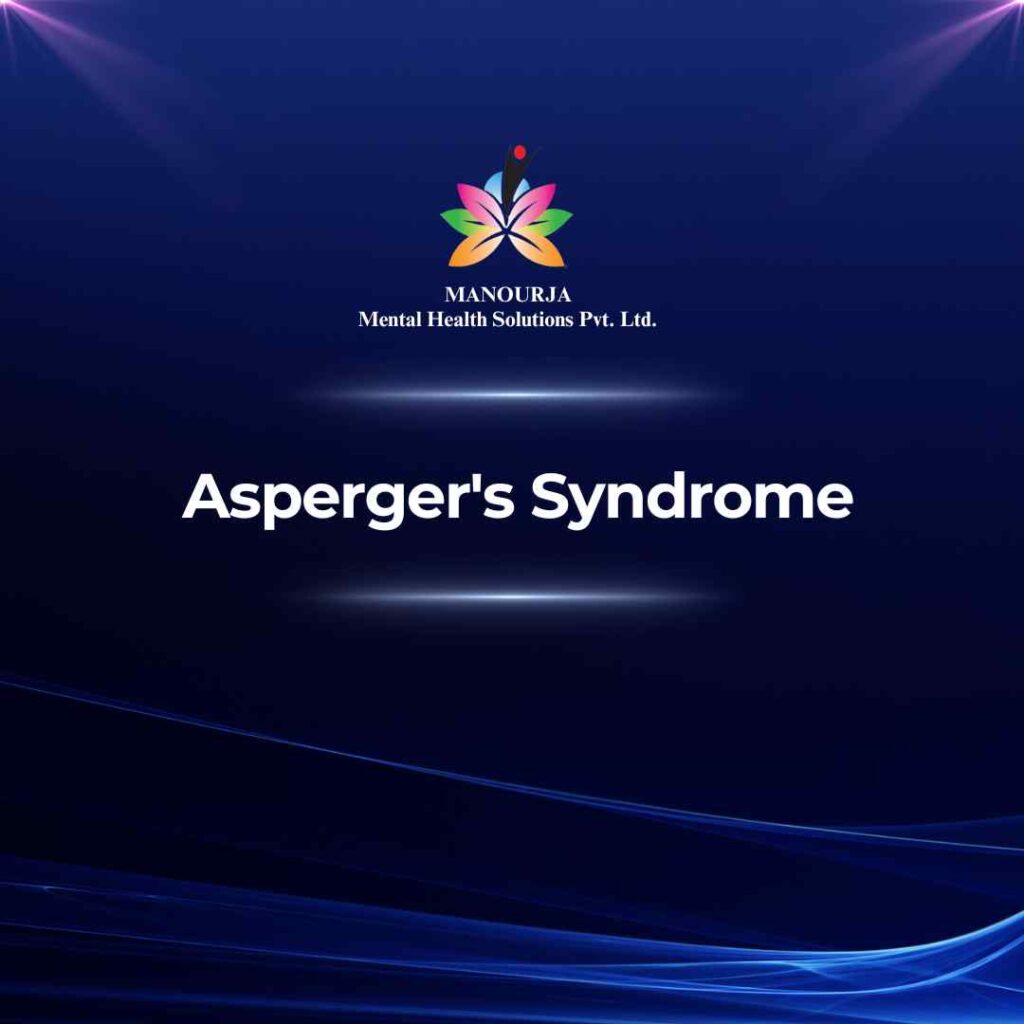Asperger’s syndrome

Asperger’s Syndrome is a developmental disorder that was historically considered to be on the milder end of the autism spectrum. It is characterized by significant difficulties in social interaction and nonverbal communication, alongside restricted and repetitive patterns of behavior and interests. Unlike other forms of autism, individuals with Asperger’s Syndrome typically do not have significant delays in language or cognitive development. In fact, individuals with Asperger’s often have average or above-average intelligence.
Symptoms of Asperger’s Syndrome
- Social Interaction Challenges: Difficulty understanding social cues such as facial expressions, body language, and tone of voice, which can lead to awkward social interactions and difficulties forming relationships.
- Communication Difficulties: Although verbal skills are typically strong, individuals may struggle with the pragmatics of language, such as engaging in back-and-forth conversation, understanding sarcasm, or recognizing subtleties in language.
- Restricted Interests: Intense and highly-focused interests in specific subjects. Individuals may accumulate a vast amount of knowledge on a particular topic and frequently talk about their interests, often without recognizing that others may not share their enthusiasm.
- Repetitive Behaviors: Engaging in repetitive routines or rituals and exhibiting a strong preference for predictability and structure.
- Sensory Sensitivities: Unusual sensitivity to sensory stimuli such as sounds, lights, textures, or temperatures.
Forms of Asperger’s Syndrome
Asperger’s Syndrome itself is considered a singular condition within the autism spectrum disorders. However, its manifestations can vary widely among individuals:
- Some may have significant challenges in social situations but excel academically, especially in fields requiring logic and detail.
- Others may struggle more visibly with the sensory or repetitive behaviors aspect, impacting their daily functioning more broadly.
Treatment of Asperger’s Syndrome
While there is no cure for Asperger’s Syndrome, treatments are available that can help manage symptoms and improve functioning:
- Behavioral Therapies: Techniques such as Cognitive Behavioral Therapy (CBT) can help manage anxiety, reduce disruptive behaviors, and improve emotion regulation.
- Social Skills Training: Group therapy sessions or social skills classes can help individuals learn and practice appropriate social interactions.
- Educational Interventions: Specialized educational programs can support the learning styles unique to those with Asperger’s, addressing both their strengths and challenges.
- Speech-Language Therapy: Although language skills may be strong, therapy can focus on improving pragmatic language skills, such as understanding the flow of conversation and reading social cues.
- Occupational Therapy: This can help manage sensory sensitivities and improve coordination and motor skills, which can be challenges for some individuals with Asperger’s.
- Support Groups: Support groups for individuals with Asperger’s and their families can provide emotional support, practical advice, and social interactions.
Conclusion
Asperger’s Syndrome is a complex disorder requiring a multi-disciplinary approach for effective management. With the right support and tailored interventions, many individuals with Asperger’s Syndrome can lead fulfilling lives and achieve personal goals. Awareness and understanding of the condition have improved, helping integrate those with Asperger’s into various aspects of society more successfully.
At MANOURJA, we believe in the transformative power of counseling. Our experienced therapists offer a safe and supportive space where you can explore your thoughts, emotions, and challenges. Through personalized counselling sessions, we’ll work together to develop coping strategies, build resilience, and achieve lasting positive change. Discover the path to a healthier, happier you with MANOURJA counselling services.
MANOURJA Rehabilitation Services
At MANOURJA, we’re dedicated to helping you in rebuild your life, after difficult times. Our rehabilitation services focus on understanding what you need to move forward, whether you’re recovering from addiction, trauma, or any psychological – social challenges. We create personalized plans, that are all about helping you, regain your strength and find hope again. With a caring team by your side, you’ll have the support to make real progress and take steps toward a brighter, healthier future.
